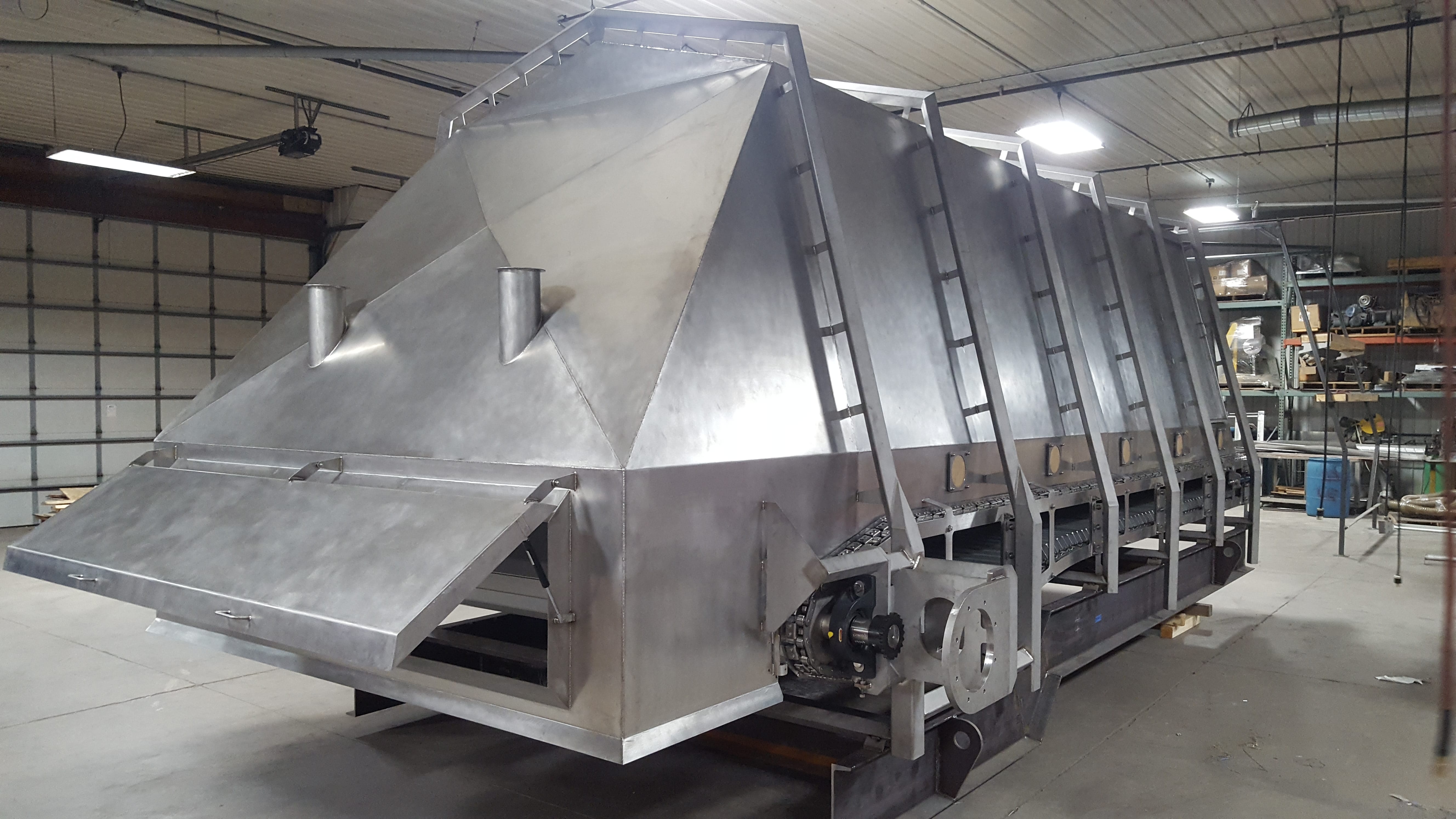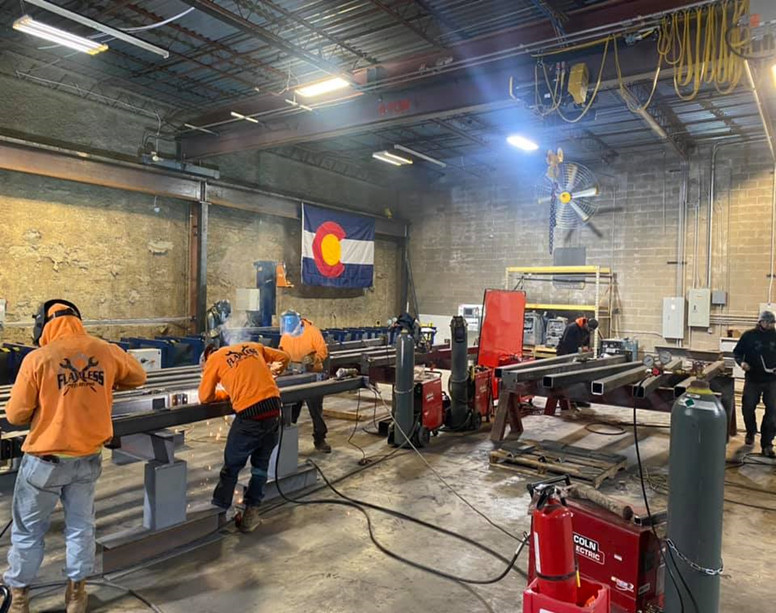Dependable Steel Fixing Services: Guaranteeing Structural Integrity
Dependable Steel Fixing Services: Guaranteeing Structural Integrity
Blog Article
The Ultimate Manual on Custom Steel Construction Solutions for Structural Projects
In the realm of architectural tasks, the importance of personalized steel fabrication options can not be overstated. From the foundational understanding of steel manufacture basics to the elaborate procedure of selecting the most appropriate products, every step in this journey plays an essential duty in the supreme success of a job. As we browse through the complexities of style factors to consider, fabrication processes, and high quality control procedures, an extensive handbook acts as a guiding light for experts looking for quality in steel manufacture solutions. Stay tuned to discover the understandings that can change the way structural jobs are come close to and carried out.
Understanding Custom Steel Fabrication Basics
Exploring the principles of custom-made steel construction supplies insight into the intricate process of changing raw steel right into tailored structural components. Personalized steel manufacture is a specific manufacturing technique that involves cutting, shaping, and constructing steel products to produce distinct structures according to details job demands. Understanding the essentials of custom-made steel construction is essential for ensuring the effective execution of structural tasks.
The process typically starts with the evaluation of project requirements and style requirements. This preliminary phase entails in-depth planning and partnership between designers, designers, and fabricators to identify the most ideal approach for fabricating the steel parts. Accuracy is key throughout the construction process, as also small discrepancies can impact the structural honesty of the end product.
Numerous techniques, such as reducing, welding, and shaping, are used to change raw steel right into the desired structural components. Proficient producers utilize sophisticated machinery and devices to make certain precision and consistency throughout the fabrication process. Quality control steps are executed to validate the stability of the produced parts prior to they are assembled on-site, making sure compliance with industry requirements and job requirements.
Picking the Right Steel Materials

Most importantly, the sort of architectural job and its specific requirements play a vital function in figuring out the most ideal steel products. Elements such as the load-bearing capacity, ecological problems, and preferred lifespan of the framework will dictate the quality and type of steel that should be made use of.
Additionally, the physical residential properties of the steel, including weldability, toughness, and ductility, must straighten with the project's demands to guarantee optimum performance and durability (Alpha reo). Furthermore, considerations such as corrosion resistance, cost-effectiveness, and schedule of the steel materials must also be thought about throughout the choice procedure
Design Factors To Consider for Architectural Jobs
Architectural jobs require meticulous interest to design considerations to ensure both functionality and safety are prioritized throughout the building procedure. When it comes to creating architectural jobs, numerous vital aspects need to be taken into account to assure the success of the endeavor. By meticulously thinking about these facets throughout the style stage, engineers and engineers can guarantee the architectural task's success from conception to completion.
Improving Fabrication Procedures for Effectiveness

Furthermore, implementing lean production concepts can significantly enhance performance in steel fabrication. By reducing waste, enhancing operations, and enhancing communication between various groups involved in the fabrication process, jobs can be finished more swiftly and with better criteria.
In addition, establishing an efficient manufacturing schedule and workflow can help in prioritizing tasks, designating sources properly, and meeting project deadlines quickly. By having a clear plan in position and consistently monitoring progress, any potential bottlenecks or delays can be identified and addressed promptly, ensuring smooth and reliable construction procedures for architectural tasks.
Quality Assurance and Task Monitoring in Steel Construction
To make sure the successful execution of steel fabrication tasks, thorough top quality control procedures and effective project management techniques are crucial parts in preserving precision and conference customer expectations. Quality control in steel manufacture includes extensive inspections at numerous phases of the construction process to validate compliance with project requirements and market requirements. This consists of product testing, dimensional checks, and weld inspections to make certain structural integrity and safety and security.
Task management plays an essential duty in collaborating the various facets of steel fabrication tasks, such as scheduling, source allowance, and communication amongst employee. A well-defined job strategy with clear objectives, landmarks, and timelines assists to monitor development and address any type of possible problems proactively. Reliable communication in between all stakeholders, including clients, designers, producers, and contractors, is important for making sure that the task advances smoothly and meets the wanted quality standards.
Conclusion
To conclude, custom steel manufacture plays a crucial duty in structural tasks by giving customized solutions making use of the ideal materials and style considerations. Efficiency in construction processes, high quality control, and efficient task administration are important for successful outcomes. By understanding the fundamentals of custom-made steel fabrication and executing streamlined processes, job teams can deliver resilient and premium structures that satisfy the particular needs of their clients.
Custom steel fabrication is a specialized production strategy that entails cutting, shaping, and setting up steel materials to create unique frameworks according to details job demands.To guarantee the successful implementation of steel manufacture jobs, precise quality control actions and efficient job management techniques are necessary elements in maintaining accuracy and meeting client assumptions. Quality control in steel construction involves strenuous assessments at various phases of the construction process to validate compliance with task specs and industry criteria (steel fixing).Project monitoring plays a Read More Here vital role in working with the various facets of steel fabrication tasks, such as scheduling, source allotment, and interaction among group participants.In final thought, custom steel construction plays a crucial function in architectural jobs by giving tailored options using the ideal products and design factors to consider
Report this page